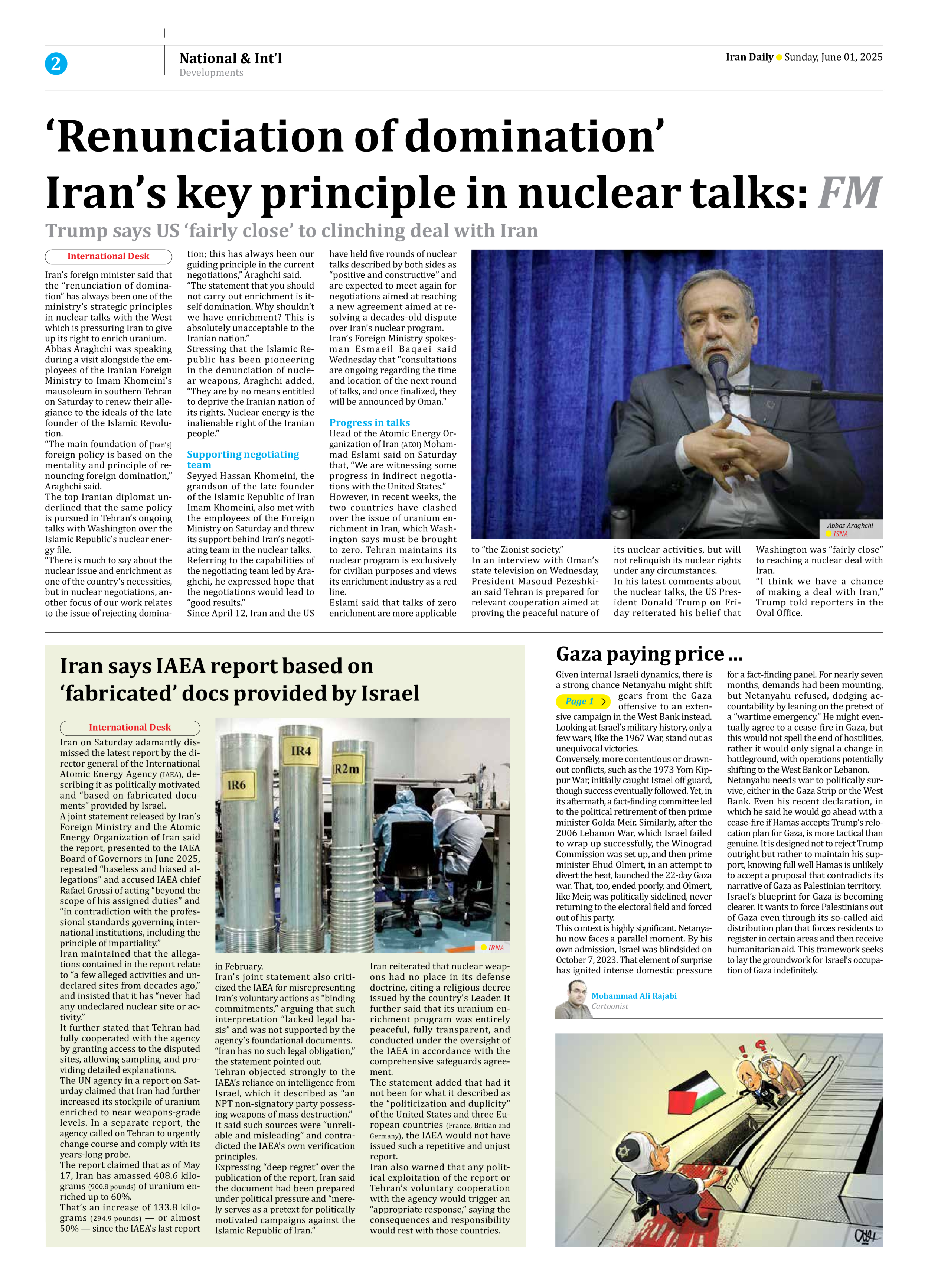
‘Renunciation of domination’ Iran’s key principle in nuclear talks: FM
Trump says US ‘fairly close’ to clinching deal with Iran
Iran’s foreign minister said that the “renunciation of domination” has always been one of the ministry’s strategic principles in nuclear talks with the West which is pressuring Iran to give up its right to enrich uranium.
Abbas Araghchi was speaking during a visit alongside the employees of the Iranian Foreign Ministry to Imam Khomeini’s mausoleum in southern Tehran on Saturday to renew their allegiance to the ideals of the late founder of the Islamic Revolution.
“The main foundation of [Iran’s] foreign policy is based on the mentality and principle of renouncing foreign domination,” Araghchi said.
The top Iranian diplomat underlined that the same policy is pursued in Tehran’s ongoing talks with Washington over the Islamic Republic’s nuclear energy file.
“There is much to say about the nuclear issue and enrichment as one of the country’s necessities, but in nuclear negotiations, another focus of our work relates to the issue of rejecting domination; this has always been our guiding principle in the current negotiations,” Araghchi said.
“The statement that you should not carry out enrichment is itself domination. Why shouldn’t we have enrichment? This is absolutely unacceptable to the Iranian nation.”
Stressing that the Islamic Republic has been pioneering in the denunciation of nuclear weapons, Araghchi added, “They are by no means entitled to deprive the Iranian nation of its rights. Nuclear energy is the inalienable right of the Iranian people.”
Supporting negotiating team
Seyyed Hassan Khomeini, the grandson of the late founder of the Islamic Republic of Iran Imam Khomeini, also met with the employees of the Foreign Ministry on Saturday and threw its support behind Iran’s negotiating team in the nuclear talks.
Referring to the capabilities of the negotiating team led by Araghchi, he expressed hope that the negotiations would lead to “good results.”
Since April 12, Iran and the US have held five rounds of nuclear talks described by both sides as “positive and constructive” and are expected to meet again for negotiations aimed at reaching a new agreement aimed at resolving a decades-old dispute over Iran’s nuclear program.
Iran’s Foreign Ministry spokesman Esmaeil Baqaei said Wednesday that "consultations are ongoing regarding the time and location of the next round of talks, and once finalized, they will be announced by Oman."
Progress in talks
Head of the Atomic Energy Organization of Iran (AEOI) Mohammad Eslami said on Saturday that, “We are witnessing some progress in indirect negotiations with the United States.”
However, in recent weeks, the two countries have clashed over the issue of uranium enrichment in Iran, which Washington says must be brought to zero. Tehran maintains its nuclear program is exclusively for civilian purposes and views its enrichment industry as a red line.
Eslami said that talks of zero enrichment are more applicable to “the Zionist society.”
In an interview with Oman’s state television on Wednesday, President Masoud Pezeshkian said Tehran is prepared for relevant cooperation aimed at proving the peaceful nature of its nuclear activities, but will not relinquish its nuclear rights under any circumstances.
In his latest comments about the nuclear talks, the US President Donald Trump on Friday reiterated his belief that Washington was “fairly close” to reaching a nuclear deal with Iran.
“I think we have a chance of making a deal with Iran,” Trump told reporters in the Oval Office.







